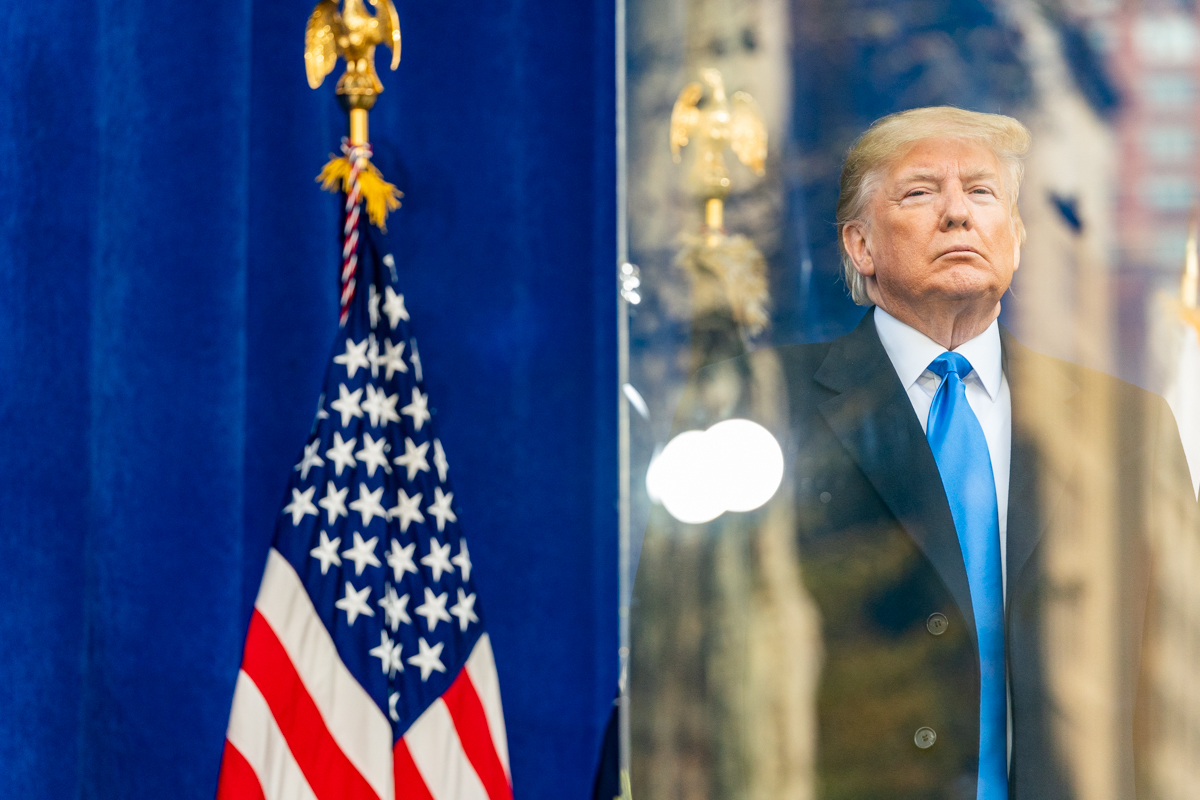martybegan
Diamond Member
- Apr 5, 2010
- 93,990
- 44,280
- 2,300
Proving the case that Trump committed the violation would be more difficult and so the SDNY made a decision not to prosecute it. The fact that they prosecuted Cohen for it is sufficient. .
This article explains it better than any other I've read:

Why Did Federal Prosecutors Drop Trump's Hush Money Case?
The answer may shed light on the strength of District Attorney Alvin Bragg’s case against Donald Trump.www.lawfaremedia.org
Honig points to a number of factors that the office reportedly considered, including the “politically explosive” nature of bringing charges against a former president. Some of the other factors at work, though, might have been more workaday considerations speaking to the underlying strength of the case. Chief among them was the problem of witnesses.
A federal prosecution of Trump on the hush money charges would have relied heavily on Michael Cohen as a star witness—just as Bragg’s prosecution of Trump has done. As prosecutors in the district attorney’s office are grappling with, though, Cohen is not the most reliable witness. He is an admitted liar: At the same time the Southern District announced his plea on the hush money charges, Special Counsel Robert Mueller unveiled a separate plea agreement under which Cohen acknowledged lying to Congress in 2017.
Bragg apparently decided to take the risk of putting Cohen on the stand, but perhaps federal prosecutors reached a different conclusion. This decision may well have been shaped by the Southern District’s unusual approach to dealing with potential cooperating witnesses. Geoffrey Berman, who led the office from 2018 through 2020, describes SDNY’s practice in his memoir on his time in the office: SDNY will offer a cooperating agreement only if a would-be witness agrees to share details about any and all other criminal activity in their past, even on matters unrelated to the case at hand. Cohen, though, would not agree to this arrangement: “[H]e would not discuss his business activities outside his work for the Trump Organization,” Berman states, of the office’s initial negotiations with Cohen. (The Southern District made its irritation with Cohen’s intransigence clear in its sentencing memo.) All this meant that the Southern District wouldn’t have been willing to put Cohen on the stand during any federal trial of Trump, making the case even more difficult to bring.
Like the district attorney’s office, SDNY also seems to have been unable to secure the cooperation of Allen Weisselberg, the Trump Organization’s chief financial officer, who would have been able to testify to Trump’s involvement in the reimbursement payoffs to Cohen. Weisselberg reportedly received immunity to testify before the federal grand jury, but there is no indication that SDNY ever reached a cooperation agreement with him. In fact, the New York Times has reported that SDNY was at one point investigating whether Weisselberg had lied before the grand jury or had otherwise obstructed the investigation—consistent with Weisselberg’s lack of cooperation with the district attorney’s case.
When it comes to the problem of absent or unreliable witnesses, though, Bragg’s office is situated differently than SDNY in important ways. Unlike the Southern District, the district attorney’s office has no policy requiring that cooperating witnesses air all their dirty laundry with prosecutors ahead of time, meaning that Bragg apparently had fewer compunctions about putting Michael Cohen on the stand. It seems that Cohen’s relationship with prosecutors in the Southern District was genuinely strained by the end: During cross-examination by defense attorney Todd Blanche, Cohen acknowledged calling the federal prosecutors, along with the judge in his federal case, “corrupt” and “fucking animals.” Maybe the DA’s office was able to get off on a better foot with their star witness.
The specific charges at issue in the state prosecution, as opposed to the would-be federal case, also make Cohen less of a potential problem for Bragg than he would have been for SDNY. A FECA case against Trump would have required a great deal of evidence about Trump’s knowledge and mental state, which—in the absence of Weisselberg—only Cohen could have provided. The business records charges under which Trump was indicted in New York, though, are much less reliant on Cohen’s testimony.
In charging Trump under FECA, prosecutors would need to have shown that Trump “knowingly and willfully” violated the statute—that, as the Justice Department describes it, he “acted with knowledge that [his] conduct was against the law.” (In its 2017 update to its manual on “Federal Prosecution of Election Offenses,” the department relaxed the standard for just how much knowledge the defendant must have of the relevant law allegedly broken, but the mens rea requirement is still unusually high.) They also would have needed to convince a jury that the hush money payments were made specifically because of the election, rather than covering up Daniels’s and McDougal’s stories to spare Trump’s family embarrassment.
All that blather for WE HATES THE TRUMPSZ
They made up new law to "make" the case.
And yet it's done nothing to help you politically, that must really grind your gears.